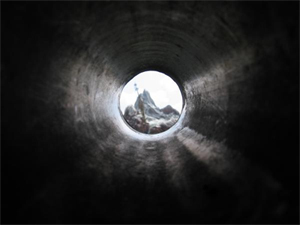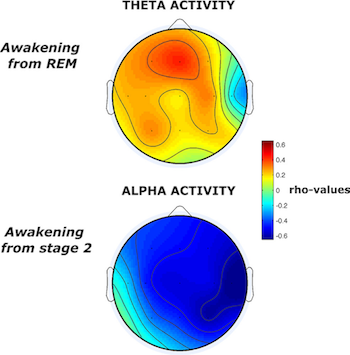The Lasting Effects of Dreams
Submitted by Edgar Reyes on Sun, 03/17/2019 - 11:07
Every so often a dream makes such an impression on me that I take the feeling along with me through the rest of the day; sometimes even a few days, if it was really impressive.
A few weeks ago I remember becoming fairly conscious in the middle of a dream where this "bad guy" alien was shooting up the downtown of a major city with his laser guns and blowing stuff up (I think I had watched a Star Wars movie that night). Everyone was running scared away from him. My first reaction was also to get scared and run in the opposite direction, but due to my semi-conscious state, I stopped myself and reminded myself, "Wait, wait... I'm in a dream!" Then I realized I didn't like the dream because all of the people in the city were scared. I became indignant with the alien, thinking aloud, "Why are you scaring people? There is no need for them to fear! We're just in a dream!" And I became determined to stop him, no matter -and not knowing- what might happen. So I ran towards him and held him in my grip and didn't loosen it one little bit. As I was running towards him, however, every step filled me with more uncertainty about the outcome, but at the same time more determination to see it through. I awoke and spend the rest of the day with a greater degree of fearlessness and of compassion towards others than I had felt for quite some time.
In a more recent dream I was hiking up mountain at night along a winding road. It was difficult and cold and a few cars passed by me without noticing me at all. I wondered if I should keep going, but didn't stop. I don't remember what happened at the top, but I clearly remember coming back down. I became light-footed and began almost gliding down the mountain side. Then I heard a whisper saying to me, "That's right. Don't be afraid. Run along the path before you!" And I began to run faster and faster, and my vision became tunnel-like and there was a veritable light at the end of the tunnel. It was daytime down at the bottom of the mountain, This feeling of faith and/or trust in focusing on what is before me and advancing enthusiasticlly and without fear still feels very real to me.
With examples like these two, I feel like saying that sometimes I learn and grow more from dreams than from real life. Certainly episodes require less time in the subtle world than in the physical, so that might account for it. But nonetheless, they are real experiences and the lessons drawn from them are just as valid as those drawn from waking life experiences.



